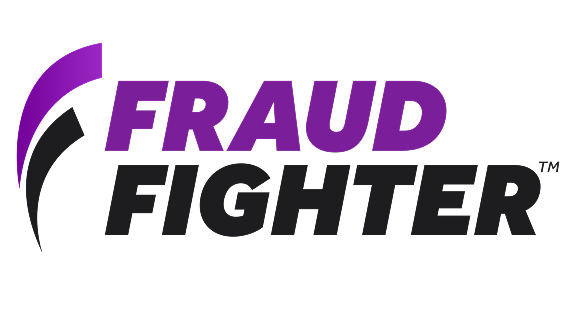
Why All Businesses Should Take Heed of the 7-Eleven ICE Raid

If you are in noncompliance with Form I-9 requirements, your business could pay a rather hefty penalty.
On January 10, 2018, U.S. Immigration and Customs Enforcement (ICE) issued a press release announcing their strategy in conjunction with Homeland Security Investigations (HSI) for enforcing employers’ compliance with federal employment eligibility requirements, targeting employers that have violated employment laws.
The goal of this strategy is to send “a strong deterrent message to all industries that companies who knowingly hire unauthorized workers will be investigated resulting in possible civil or criminal penalties.”
There are three different methods that will be used to achieve this goal:
- Compliance through Form I-9 inspections
- Enforcement through the arrests of noncompliant parties
- Outreach through the ICE Mutual Agreement between Government and Employers (IMAGE) program
What is Form I-9?
Form I-9 is a federally required form that employers are required to complete for every new employee hired in order to verify the employee’s identity as well as employment eligibility status.
Form I-9 has been a federal requirement since 1986; legislators needed a way to curb illegal immigration without affecting legal immigration. Considering employment is a core reason why illegal immigration occurs, by mandating employers to verify all employees’ identities and employment eligibility statuses, one of the reasons why illegal immigration occurs can be weakened.
To learn more about Form I-9 and its requirements, click here.
The same day ICE issued its press release, it began to implement the stated strategy by raiding 98 7-Eleven stores in 17 states. Along with serving audit notices, agents arrested 21 workers. According to the audit notices, the stores had three days to provide documentation on the employment eligibility statuses of their employees.
The raid on 7-eleven is just the beginning.
According to Matthew Allen, assistant director for investigative programs at Ice Homeland Security Investigations, “The enforcement operation that happened on Jan. 10 will not be the last one that you hear about in 2018. We’ll go where our information and evidence takes us.”
To all employers: Now is the time to make sure that you are in compliance with federal employment eligibility requirements by double-checking that all requirements as given through Form I-9 are met for all employees.
Penalties for Form I-9 Noncompliance
Noncompliance could result in civil fines, and depending on the severity of noncompliance, could result in criminal fines and imprisonment as well.
There are three general categories of noncompliance:
- Unlawful Employment
- Unlawful Discrimination
- Civil Document Fraud
Unlawful Employment occurs when employers knowingly hire or continue to hire employees who do not meet federal employment eligibility requirements; employers who fail to complete Form I-9 for all employees also fall into this noncompliance category.
Depending on the severity of the noncompliance and whether or not the employer made a ‘good faith’ attempt to comply with Form I-9 requirements, the penalties for this type of noncompliance range from civil/criminal monetary penalties to imprisonment.
Unlawful Employment civil monetary penalties can range from $220-$21,916 for each incidence of noncompliance. Depending on the severity of noncompliance as well as other factors, a multiplier between .75 and 1.25 can be added to the final civil monetary penalty.
Unlawful Employment criminal penalties can include additional fines as well as imprisonment of up to five years.
Unlawful Discrimination occurs when employers discriminate based on whether or not an employee is able to produce a certain type of identity document (for example, employers cannot demand a certain type of identity document by presented to complete Form I-9), the citizenship of an employee, or the nation origin of an employee.
Employers who retaliate against employees for reporting discriminatory practices are also guilty of unlawful discrimination. Depending on how the employer has discriminated against an employee or employees, the employer may be required to take corrective steps for the employee (for example, rehiring an employee who was fired for discriminatory reasons), pay civil monetary penalties, and pay compensatory damages to affected employees.
Unlawful Discrimination civil monetary penalties can range from $250-$10,000 for each incidence of discriminatory action. Additionally, compensatory damages may be awarded to employees affected by the discriminatory action or actions. In the event of a lawsuit, the employer may also end up responsible for court fees, attorney fees, etc.
Unlawful Discrimination civil nonmonetary penalties can range from the rehiring of employees fired for discriminatory reasons to posting notices about employee rights.
Civil Document Fraud occurs when employers and/or employees know that an identity document or the information on an identity document is fraudulent in some way but proceed as if the identity document is authentic. Those found guilty of civil document fraud can be subject to civil monetary penalties as well as the criminal penalty of imprisonment.
Civil Document Fraud civil monetary penalties can range from $275-$5,500 per incident of fraud.
Civil Document Fraud criminal penalties can include additional fines as well as imprisonment of up to fifteen years, depending on the severity of fraud.
If you are in noncompliance as described above, you can be sure an audit will find the noncompliant actions and penalize your business appropriately.
Avoiding I-9 Penalties: The Good-Faith Exception
Ignorance or unawareness about Form I-9 requirements is not a valid excuse being noncompliant with Form I-9 requirements. While penalties for violations that are willful are much more severe, you can still be penalized for being in noncompliance with I-9 requirements due to being ignorant or unaware about the requirements.
Taking steps to correct violations voluntarily after the violation occurs but before being subject to an audit can mitigate the penalties you receive.
So even if you are currently noncompliant with Form I-9 requirements, you should still take the steps needed to become compliant!
There is, however, one way out of being subject to Form I-9 noncompliance penalties: the Good-Faith Exception.
If an employer can prove that “it has complied in good faith with the requirements of the employment verification obligations”, the employer “has an affirmative defense to a charge that it has violated the provisions.”
The Good-Faith Exception
If an employer has complied in good faith with the requirements of the employement verification obligations, the employer has an affirmative defense to a charge that it has violated the provisions.
Of course, in order to meet Form I-9 requirements, an employer has to make sure the form is correctly and completely filled out. The employer also needs to make sure that each employee presents the correct type of identity document(s) according to Form I-9 requirements and that the identity documents “reasonably appear to be genuine and to relate to the person presenting them.”
If an employee presents a counterfeit identity document, employers are obligated to ask the employee to produce another acceptable, authentic identity document. In the event that an employee is unable to produce an authentic document, you may (and should) fire the employee. If you choose to hire the employee that presents a questionable or counterfeit identity document or documents, you will no longer meet the requirements of the good faith exception.
The Good Faith Exception and Counterfeit Identity Documents
A 1991 court case – United States v. Tuttle’s Design Build, Inc. – determined that “the employer may not argue good faith compliance with the verification requirements if the documents presented are clearly counterfeit, forged, or do not relate to the employee”.
In order to qualify for the good faith exception in the event of an audit – even if the audit finds that you have hired an employee who is/was not authorized to work in the United States – employers need to be able to show beyond a reasonable doubt that they have taken all the steps that they could to make sure that identity documents presented are real and depict the person presenting the documents.
And one way to do this is through identity authentication.
Identity authentication machines can authenticate whether or not the identity document is authentic or fake. If an identity authentication machine showed that a given identity document is authentic, employers can prove that they meet the requirements for the good faith exception.
With identity authentication, employers can make sure that their business is protected from Form I-9 noncompliance penalties. And with ICE’s increased dedication to cracking down on I-9 violations in the coming months and years, employers need to make sure there is a solid defense in place that exempts the business from paying a single cent in penalties.
While monetary fines due to a minor, singular noncompliance incident can potentially be absorbed by the business without too much issue, there have been many incidents in which businesses – both knowingly and unknowingly – were in noncompliance with Form I-9 regulations and were subject to fines in the hundreds of thousands, even millions in certain cases. Could your business absorb such a hit and survive?
Stories about Noncompliance & Subsequent Penalties
Asplundh Tree Experts, Co.; Willow Grove, Pennsylvania (2017)
• Civil Penalty: $15 million
• Criminal Penalty: $80 million
• Total Penalty Paid: $95 million
Source: ice.gov
Jasper Wyman & Son; Milbridge, Maine (2011)
• Civil Penalty: $118,000
• Criminal Penalty: $0
• Total Penalty Paid: $118,000
Source: ice.gov
Broetje Orchard, LLC; Prescott, Washington (2015)
• Civil Penalty: $2.25 million
• Criminal Penalty: $0
• Total Penalty Paid: $2.25 million
Source: ice.gov
Infosys Limited; Plano, Texas (2013)
• Civil Penalty: $34 million
• Criminal Penalty: $0
• Total Penalty Paid: $34 million
Source: ice.gov
Infinite Visions, LLC; Secaucus, NJ (2012)
• Civil Penalty: $625,000
• Criminal Penalty: $0
• Total Penalty Paid: $625,000
Source: ice.gov
Austin Jack DeCoster; Clarion, IA (2003)
• Civil Penalty: $2.125 million
• Criminal Penalty: $0
• Total Penalty Paid: $2.125 million
Source: siouxcityjournal.com
John Glessner Jr.; Clarion, IA (2003)
• Civil Penalty: $306,000
• Criminal Penalty: 4 months in prison
• Total Penalty Paid: $306,000 + 4 months in prison
Source: siouxcityjournal.com
Walmart (2005)
• Civil Penalty: $11 million
• Criminal Penalty: $0
• Total Penalty Paid: $11 million
Source: ogletree.com





.png)
